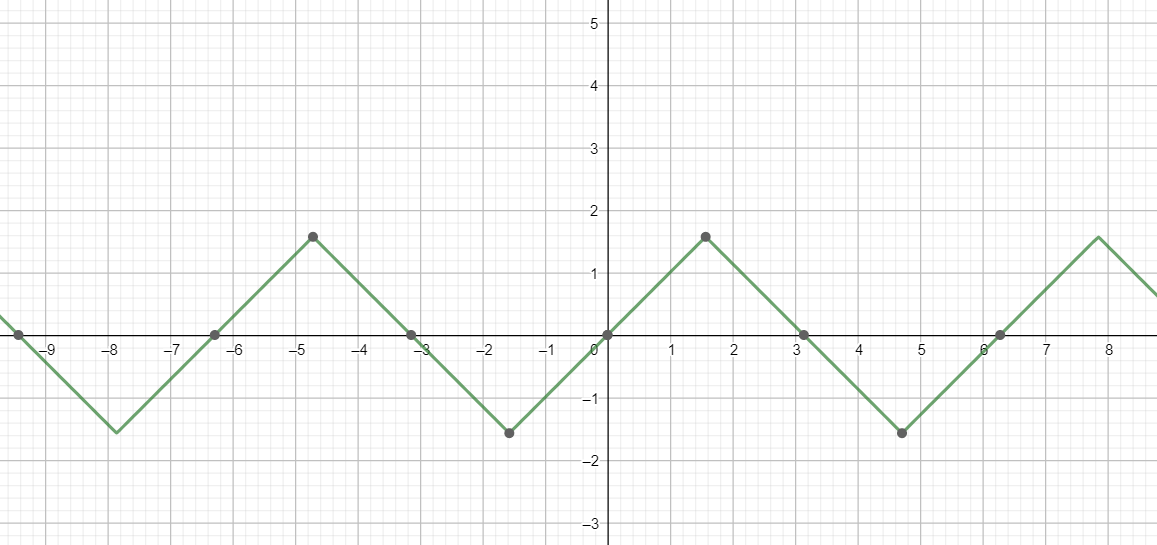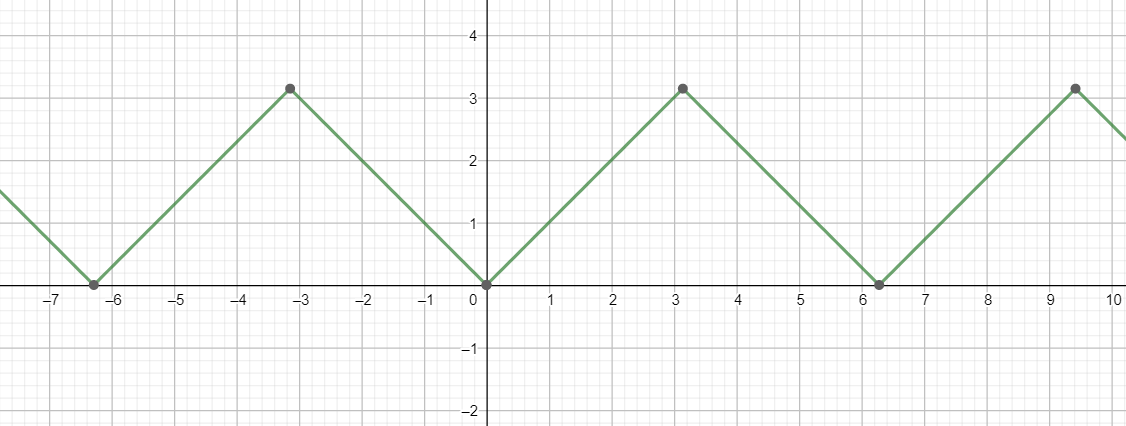Question
Question: The value of \({{\sin }^{-1}}\left( \cos \left( {{\cos }^{-1}}\cos x+{{\sin }^{-1}}\sin x \right) \r...
The value of sin−1(cos(cos−1cosx+sin−1sinx)), where x∈(2π,π) is equal to
[a] 2π
[b] π
[c] −π
[d] −2π
Solution
Hint: Use the fact that if sinx=siny, then x=nπ+(−1)ny,n∈Z and sin−1x∈[2−π,2π] and if cosx=cosy, then x=2nπ±y,n∈Z and cos−1x∈[0,π]. Assume u=cos−1(cosx) and hence prove that u=2nπ±x,n∈Z. Find the suitable value of n such that u∈[0,2π]. Hence find the value of u. Similarly, assume v=sin−1(sinx) and hence prove that v=nπ+(−1)nx,n∈Z. Find the suitable value of n such that v∈[2−π,2π]. Hence find the value of v. Hence find the value of cos(cos−1cosx+sin−1sinx) and hence evaluate the given expression.
Complete step-by-step answer:
Let u=cos−1cosx
We know that if y=cos−1x⇒x=cosy
Hence, we have
cosu=cosx
We know that if cosx=cosy, then x=2nπ±y,n∈Z
Hence, we have
u=2nπ±x,n∈Z
We know that cos−1x∈[0,π]
Hence, we have u∈[0,π]
Now since x∈(2π,π), we have x∈[0,π]
Hence, we have
u=x
Now, let v=sin−1sinx
Hence, we have
sinv=sinx
We know that if sinx=siny, then x=nπ+(−1)ny,n∈Z
Hence, we have
v=nπ+(−1)nx
Since sin−1x∈[2−π,2π], we have
v∈[2−π,2π]
Now since x∈(2π,π), we have π−x∈[2−π,2π]
Hence, we have
v=π−x
Hence, we have
sin−1sinx+cos−1cosx=v+u=π−x+x=π
Hence, we have
cos(sin−1sinx+cos−1cosx)=cosπ=−1
We know that sin−1(−x)=−sin−1x
Hence, we have
sin(cos(sin−1sinx+cos−1cosx))=sin−1(−1)=−sin−11
We know that sin−1(1)=2π
Hence, we have
sin(cos(sin−1sinx+cos−1cosx))=−2π
Hence option [d] is correct.
Note: Alternative solution:
We know that
{{\sin }^{-1}}\sin \left( x \right)=\left\\{ \begin{matrix}
\vdots \\\
-\pi -x,x\in \left[ \dfrac{-3\pi }{2},\dfrac{-\pi }{2} \right] \\\
x,x\in \left[ \dfrac{-\pi }{2},\dfrac{\pi }{2} \right] \\\
\pi -x,x\in \left[ \dfrac{\pi }{2},\dfrac{3\pi }{2} \right] \\\
\vdots \\\
\end{matrix} \right. and {{\cos }^{-1}}\cos x=\left\\{ \begin{matrix}
\vdots \\\
2\pi +x,x\in \left[ -2\pi ,-\pi \right] \\\
x,x\in \left[ 0,\pi \right] \\\
2\pi -x,x\in \left[ \pi ,2\pi \right] \\\
\vdots \\\
\end{matrix} \right.
Using these definitions, we can find the value of the above expression.
Graph of sin−1sinx:

Graph of cos−1cosx:

